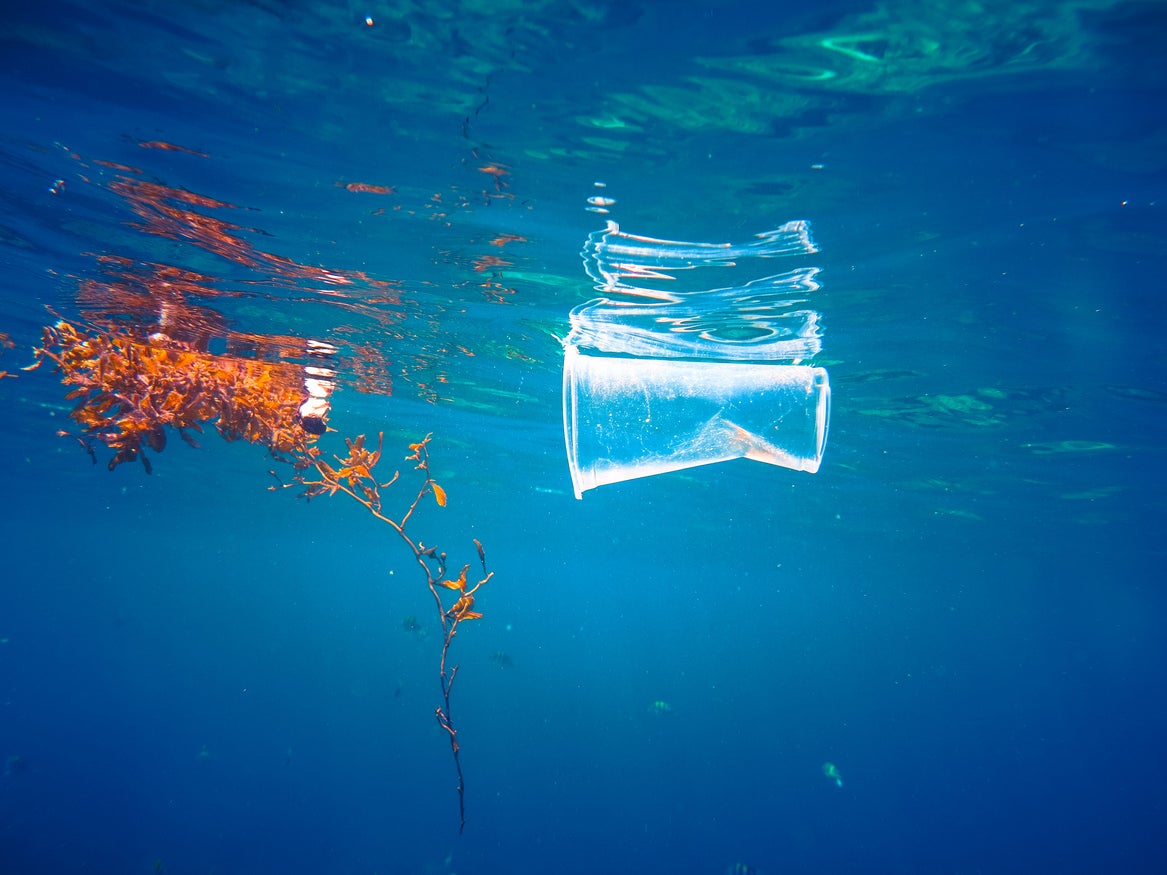Wrecked sea life could be largely revived in 30 years under action plan, say scientists
‘Failing to embrace this challenge – and condemning our grandchildren to a broken ocean - is not an option,’ says lead author

Your support helps us to tell the story
From reproductive rights to climate change to Big Tech, The Independent is on the ground when the story is developing. Whether it's investigating the financials of Elon Musk's pro-Trump PAC or producing our latest documentary, 'The A Word', which shines a light on the American women fighting for reproductive rights, we know how important it is to parse out the facts from the messaging.
At such a critical moment in US history, we need reporters on the ground. Your donation allows us to keep sending journalists to speak to both sides of the story.
The Independent is trusted by Americans across the entire political spectrum. And unlike many other quality news outlets, we choose not to lock Americans out of our reporting and analysis with paywalls. We believe quality journalism should be available to everyone, paid for by those who can afford it.
Your support makes all the difference.Sea life and ocean ecosystems could substantially rebound within 30 years if humanity takes serious action to protect species and rebuild natural habitats, scientists say.
The world is at a point at which people must choose whether to leave future generations a resilient, vibrant ocean or an “irreversibly disrupted” one.
Marine life can be revived – but the window for doing so is now very narrow, they caution.
An action plan that includes tackling climate change would bring about a “substantial” recovery, the international team of researchers announced, as they set out a vision of restoring marine life by 2050.
The scientists said the focus should be on actively rebuilding depleted wildlife populations and ecosystems, not simply on conserving what remains, and efforts to remove pressure on the oceans must be expanded.
Steps needed include protecting vulnerable habitats and species; exercising caution in fishing; restoring habitats; reducing pollution and, critically, curbing the climate crisis.
And the plan can succeed only if the most ambitious goals to limit global temperature rises within the international Paris Agreement on climate change are reached, the experts writing in the journal Nature warn.
Extending protection across half of the oceans could cost $10bn-$20bn (£8bn-£16bn) a year, the report finds. But it would deliver far more in returns, through ecotourism, sustainable fishing and reductions in insurance claims from storms if coastal areas are protected by mangroves or saltmarshes.
Many marine species, habitats and ecosystems have suffered catastrophic declines as oceans have warmed, been overfished and damaged by pollution and shipping.
We have a narrow window of opportunity to deliver a healthy ocean to our grandchildren’s generation, and we have the knowledge and tools to do so
Rising temperatures are further undermining the oceans’ productivity and rich wildlife by damaging coral reefs.
But substantially rebuilding marine life, so that populations rebound by 50-90 per cent, within a human generation is largely achievable, if action happens at a large scale, the experts say.
The scientists point to examples of “impressive resilience” in marine wildlife, such as the recovery of fish populations during the first and second world wars when fishing was reduced.
Curbing hunting, better management of fisheries, regulating pollutants and creating protected areas have already reduced the toll on ocean life and helped revive some species.
Humpback whales migrating from Antarctica to Australia, for instance, have returned from the brink of extinction in 1968 to more than 40,000 today.
And northern elephant seals have increased from just 20 breeding animals in 1880 to more than 200,000 today.
Lead author Carlos Duarte, professor of marine science at King Abdullah University of Science and Technology in Saudi Arabia said: “We have a narrow window of opportunity to deliver a healthy ocean to our grandchildren’s generation, and we have the knowledge and tools to do so.
“Failing to embrace this challenge – and in so doing condemning our grandchildren to a broken ocean unable to support high-quality livelihoods -is not an option.”
He warned: “If we don’t tackle climate change and raise the ambition and immediacy of these efforts, we risk wasting our efforts.
“We also need to move closer towards reducing pressure on fish stocks, and tackle elements of pollution, such as plastic litter.”
Dr David Tudor, projects director for Blue Marine Foundation, told The Independent: "This is a significant and positive study and it is vital that we act on its findings to fight the impact of the nature and climate crises we are facing. This study shows that many of the marine conservation projects taking place across the UK and the rest of the globe are having an enormous impact on restoring the biodiversity of the ocean.
"However, the number and scale of these interventions needs to increase rapidly if we are to come close to halting the devastating impact of over-fishing, pollution and habitat loss on the health of the ocean. It’s essential that the global ocean is managed sustainably and the areas that need it have the highest levels of protection. There are amazing projects happening right now: whether it’s restoring native oysters in the Solent, working on models of sustainable fishing in Berwickshire, or expanding marine protection in the Maldives, but the world needs more and, critically, we need them now."
A study last month found Lego bricks could survive in the sea for as many as 1,300 years.
Join our commenting forum
Join thought-provoking conversations, follow other Independent readers and see their replies
Comments